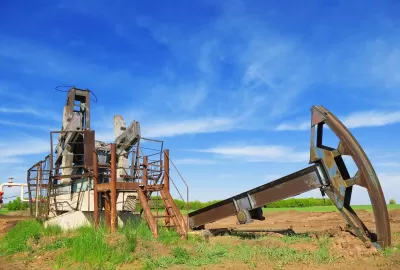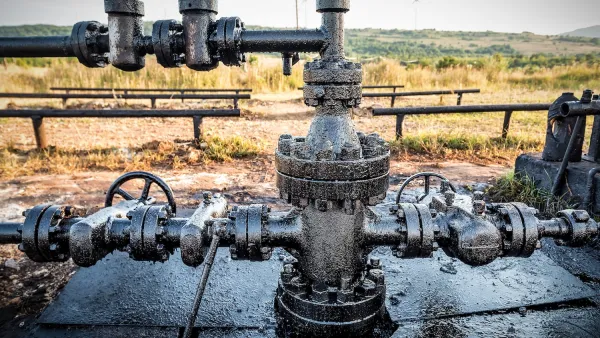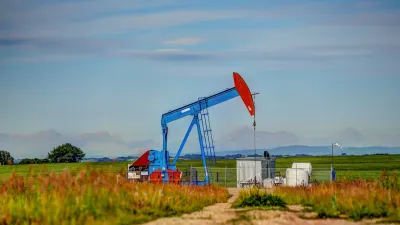The funding will be used to plug orphaned oil and gas wells, addressing environmental hazards, creating jobs, and advancing environmental justice as part of a larger effort funded by the Bipartisan Infrastructure Law.

The Biden-Harris Administration, through the Department of the Interior, has announced the allocation of $126.7 million to tackle legacy pollution in Alaska, Arizona, Indiana, New York, and Ohio. This funding is part of President Biden's Investing in America agenda and aims to address the environmental and safety hazards posed by orphaned oil and gas wells. These wells, which release toxic pollutants and methane, will be plugged to protect public health, reduce climate change impacts, and create good-paying union jobs. The initiative supports the U.S. Methane Emissions Reduction Action Plan and contributes to broader environmental justice goals.
The funding will enable the five states to plug nearly 600 orphaned wells and inventory additional undocumented wells for future plugging. These efforts seek to not only mitigate environmental hazards but also spur economic growth and community revitalization. Secretary of the Interior Deb Haaland emphasized the significance of this historic investment in addressing environmental injustices and protecting millions of Americans living near these hazardous sites. The initiative is aligned with the President’s Justice40 Initiative, which aims to deliver 40 percent of the benefits of federal investments to disadvantaged communities.
This funding is part of a larger $660 million in formula grants from the Bipartisan Infrastructure Law, which includes a total investment of $4.7 billion to address legacy pollution across the United States. Since August 2022, the Department has awarded $565 million in initial grant funding, and as of March 2024, over 340 wells have been plugged in the five states receiving the latest funding. Nationwide, over 7,700 wells have been plugged, reducing significant carbon dioxide equivalent emissions and supporting thousands of jobs. States are also eligible for additional performance grants to further enhance their efforts in tackling orphaned wells.

Maui's Vacation Rental Debate Turns Ugly
Verbal attacks, misinformation campaigns and fistfights plague a high-stakes debate to convert thousands of vacation rentals into long-term housing.

Planetizen Federal Action Tracker
A weekly monitor of how Trump’s orders and actions are impacting planners and planning in America.

In Urban Planning, AI Prompting Could be the New Design Thinking
Creativity has long been key to great urban design. What if we see AI as our new creative partner?

King County Supportive Housing Program Offers Hope for Unhoused Residents
The county is taking a ‘Housing First’ approach that prioritizes getting people into housing, then offering wraparound supportive services.

Researchers Use AI to Get Clearer Picture of US Housing
Analysts are using artificial intelligence to supercharge their research by allowing them to comb through data faster. Though these AI tools can be error prone, they save time and housing researchers are optimistic about the future.

Making Shared Micromobility More Inclusive
Cities and shared mobility system operators can do more to include people with disabilities in planning and operations, per a new report.
Urban Design for Planners 1: Software Tools
This six-course series explores essential urban design concepts using open source software and equips planners with the tools they need to participate fully in the urban design process.
Planning for Universal Design
Learn the tools for implementing Universal Design in planning regulations.
planning NEXT
Appalachian Highlands Housing Partners
Mpact (founded as Rail~Volution)
City of Camden Redevelopment Agency
City of Astoria
City of Portland
City of Laramie





























